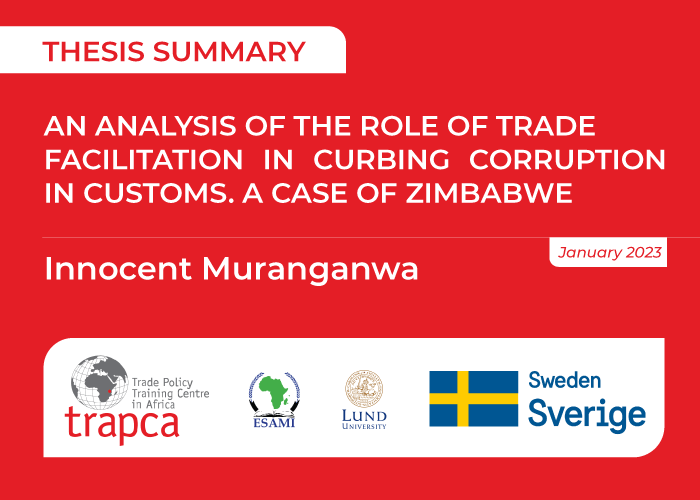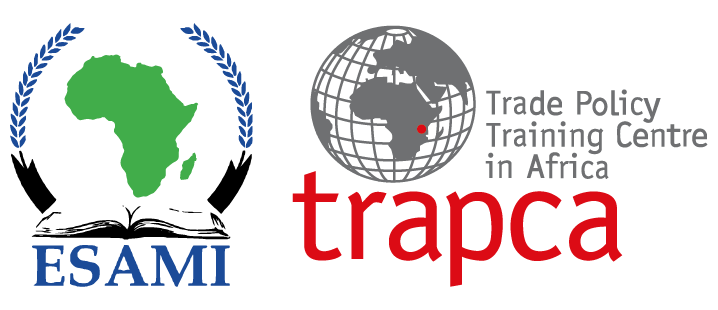

Costs incurred in trade need to be as low as possible for businesses to remain competitive in the global markets. Corruption and delays at Ports of Entry especially in developing countries remain a big challenge for business. The Trade Facilitation Agreement (TFA) outlines a number of measures which if implemented properly can help reduce costs associated with importing and exporting goods across international borders.
The study looks at the challenge of corruption at Ports entry in Zimbabwe, especially at the country’s busiest border Post Beitbridge. To try and address this challenge the Zimbabwean Government introduced a number of Trade Facilitation (TF) measures which include pre-clearance, electronic lodgement of customs declarations, introduction of the Authorised Economic Operator (AEO) system, advance rulings in valuation, origin and classification of goods, use of risk management, use of Post Clearance Audits, automation of processes and simplification of procedures but corruption has remained very high at Beitbridge. According to previous studies, corruption goes down when TF measures increase. However, after the introduction of these measures the challenge of corruption remains very high at Beitbridge Border Post.
Click here to read more
Trapca House
Esami Road;
P.O Box 3030,
Arusha,Tanzania
+255 27 297 0077 / +255 737 063 640
info@trapca.org / admissions@trapca.org
Mon – Fri 8:00 A.M. – 5:00 P.M.
